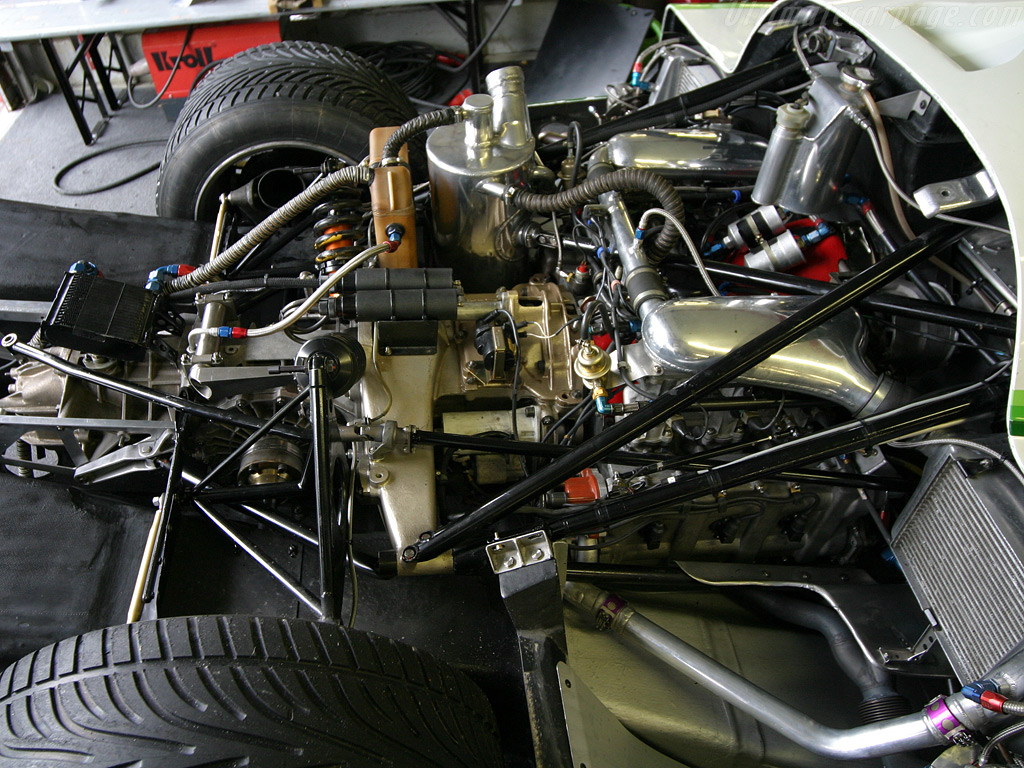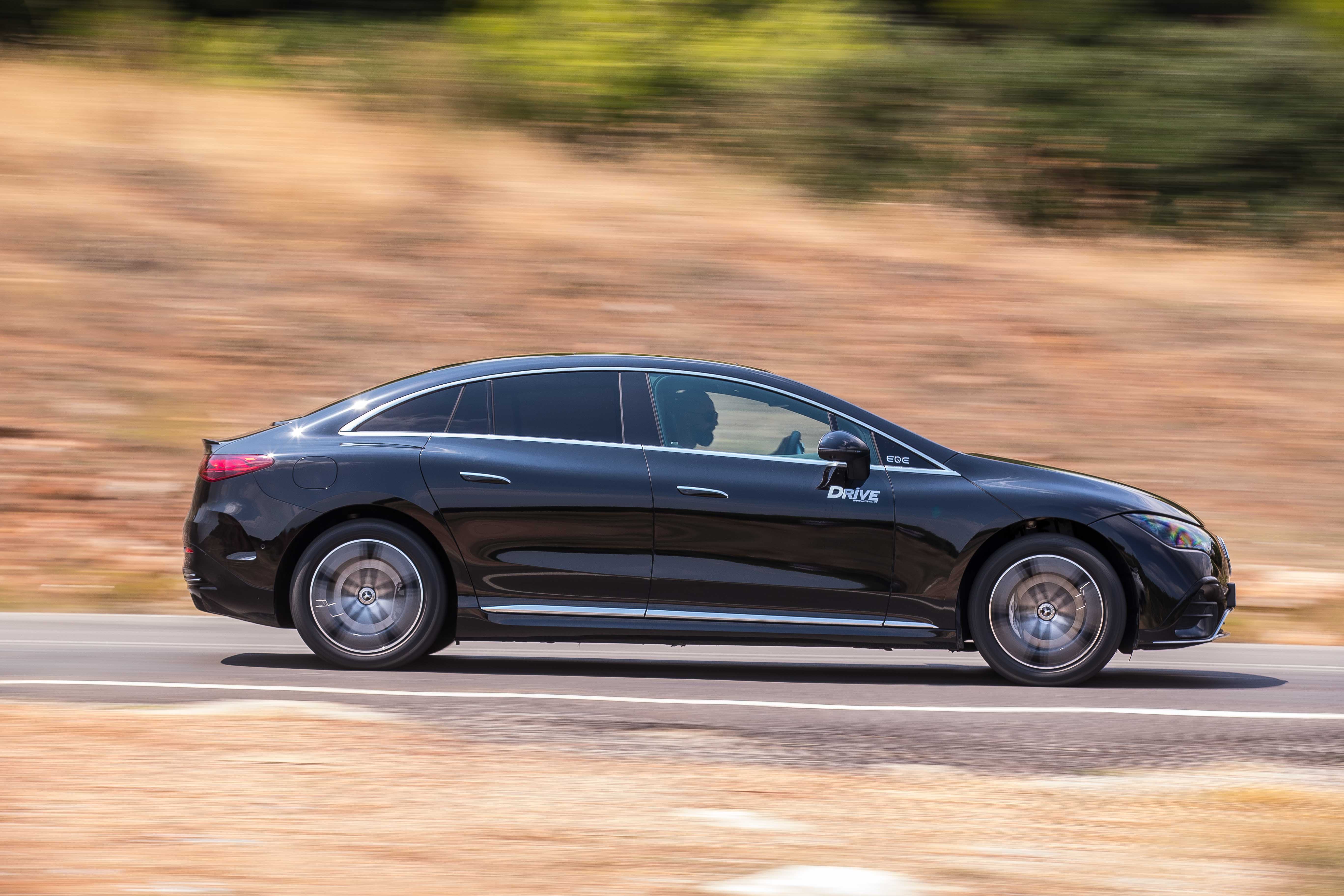Are BMW And Porsche Losing Ground In China? A Detailed Examination

Table of Contents
The Chinese luxury car market, once a guaranteed goldmine for international giants, is witnessing a seismic shift. Recent reports indicate a slowing growth rate for established players, prompting the crucial question: Are BMW and Porsche losing ground in China? This article will delve into a detailed examination of this critical issue, exploring the factors influencing the market share of these iconic brands in the world's largest automotive market. Historically, BMW and Porsche enjoyed significant dominance, but a confluence of factors is now challenging their position.
H2: The Rise of Domestic Chinese Luxury Brands
The most significant challenge to BMW and Porsche's dominance stems from the explosive growth of domestic Chinese luxury brands. These brands are no longer simply offering budget-friendly alternatives; they are directly competing with established players in the premium segment.
H3: Competition from Local Players
The rise of BYD, Nio, Li Auto, and others is undeniable. These companies are leveraging advanced technology, sophisticated designs, and competitive pricing to win over Chinese consumers.
- Specific Models: BYD's high-end Yangwang U8 SUV directly competes with the BMW X7 and Porsche Cayenne, while Nio's ET7 sedan challenges the BMW i7 and Porsche Taycan. Li Auto's extended-range electric SUVs offer a unique proposition in the luxury market.
- Technological Advancements: Chinese brands are often at the forefront of electric vehicle technology, offering features like advanced driver-assistance systems (ADAS), impressive battery ranges, and seamless connectivity.
- Price Competitiveness: Domestic luxury brands frequently undercut their international counterparts in price, making them a more attractive option for price-conscious buyers.
H3: Shifting Consumer Preferences
Chinese consumer preferences are evolving rapidly, favoring brands that align with their values and technological aspirations. This shift impacts BMW and Porsche's sales significantly.
- Electric and Hybrid Vehicles: The Chinese market demonstrates a strong preference for electric and hybrid vehicles, a sector where domestic brands are often more advanced and competitive.
- Technology and Features: Chinese consumers are highly tech-savvy and place a premium on advanced features, giving an edge to brands offering cutting-edge technology.
- Brand Loyalty and National Pride: A growing sense of national pride fuels a preference for domestic brands, impacting the appeal of traditional international luxury marques.
H2: Economic Factors and Market Challenges
Beyond domestic competition, broader economic factors and market challenges further complicate the situation for BMW and Porsche.
H3: Economic Slowdown in China
China's recent economic slowdown has directly impacted luxury car sales. Consumers are becoming more cautious with their spending, affecting demand for high-end vehicles.
- Reduced Consumer Spending: The economic slowdown has reduced disposable income, pushing luxury purchases lower on the priority list for many consumers.
- Fluctuating Currency Exchange Rates: Currency fluctuations make imported luxury cars more expensive, further impacting their affordability and competitiveness.
- Government Regulations: Government regulations related to emissions, fuel efficiency, and import tariffs can influence the pricing and availability of luxury vehicles.
H3: Supply Chain Disruptions
Global supply chain issues, particularly chip shortages and logistical challenges, have impacted the availability and pricing of BMW and Porsche vehicles in China.
- Chip Shortages: The ongoing global chip shortage has hampered production, leading to longer waiting times and impacting sales.
- Logistical Challenges: Transportation costs and delays have increased the cost and reduced the availability of imported vehicles.
- Geopolitical Factors: Geopolitical instability and trade tensions can further disrupt supply chains and impact the availability of parts and vehicles.
H2: BMW and Porsche's Strategies in China
Faced with these challenges, BMW and Porsche are adapting their strategies to maintain their foothold in the Chinese market.
H3: Adaptation and Innovation
Both brands are investing heavily in electric and hybrid models to cater to the growing demand for sustainable vehicles.
- New Electric and Hybrid Models: BMW and Porsche are rapidly expanding their EV and hybrid lineups to compete with Chinese rivals.
- Marketing and Branding: Both companies are adjusting their marketing campaigns to resonate with Chinese consumer preferences and values.
- Partnerships and Collaborations: Strategic partnerships with Chinese companies are being explored to enhance local production and distribution.
H3: Pricing and Market Positioning
BMW and Porsche are evaluating their pricing strategies and market positioning to remain competitive.
- Price Competitiveness: Maintaining price competitiveness with domestic brands is crucial, requiring strategic pricing decisions.
- Product Lineup Adjustments: Adjustments to their product lineup, introducing more models tailored to Chinese consumer preferences, are essential.
- Promotional Offers and Discounts: Offering targeted promotional offers and discounts can help to boost sales and attract customers.
Conclusion:
The Chinese luxury car market is undeniably evolving, presenting significant challenges for established players like BMW and Porsche. The rise of competitive domestic brands, economic headwinds, and shifting consumer preferences are undeniable factors. While BMW and Porsche are actively adapting through innovation, localization, and strategic pricing, their continued success will hinge on their ability to effectively address these dynamic market forces. Whether they are definitively "losing ground" is debatable; however, their dominance is certainly being tested. What are your predictions for the future of BMW and Porsche's market share in China? Share your thoughts in the comments below!

Featured Posts
-
 Black Lives Matter Plaza From Dedication To Dismantling
May 25, 2025
Black Lives Matter Plaza From Dedication To Dismantling
May 25, 2025 -
 Porsche 956 Nin Tavan Asili Sergilenme Nedeni
May 25, 2025
Porsche 956 Nin Tavan Asili Sergilenme Nedeni
May 25, 2025 -
 Czy Porsche Cayenne Gts Coupe To Suv Idealny Moja Opinia Po Jezdzie
May 25, 2025
Czy Porsche Cayenne Gts Coupe To Suv Idealny Moja Opinia Po Jezdzie
May 25, 2025 -
 Frank Sinatras Wives Exploring His Four Marriages And Love Life
May 25, 2025
Frank Sinatras Wives Exploring His Four Marriages And Love Life
May 25, 2025 -
 Us Court Case Media Company Sues Cohere For Copyright Infringement
May 25, 2025
Us Court Case Media Company Sues Cohere For Copyright Infringement
May 25, 2025
Latest Posts
-
 Mercedes Ferstapen Mia Sxesi Poy Psyxrainetai
May 25, 2025
Mercedes Ferstapen Mia Sxesi Poy Psyxrainetai
May 25, 2025 -
 Italian Open Chinese Tennis Players Quarterfinal Berth
May 25, 2025
Italian Open Chinese Tennis Players Quarterfinal Berth
May 25, 2025 -
 To Mellon Toy Ferstapen I Mercedes Ekfrazei Amfivolies
May 25, 2025
To Mellon Toy Ferstapen I Mercedes Ekfrazei Amfivolies
May 25, 2025 -
 Wta Italian Open Chinese Player Through To Quarterfinals
May 25, 2025
Wta Italian Open Chinese Player Through To Quarterfinals
May 25, 2025 -
 Ferstapen Stin Mercedes I Omada Topotheteitai
May 25, 2025
Ferstapen Stin Mercedes I Omada Topotheteitai
May 25, 2025
